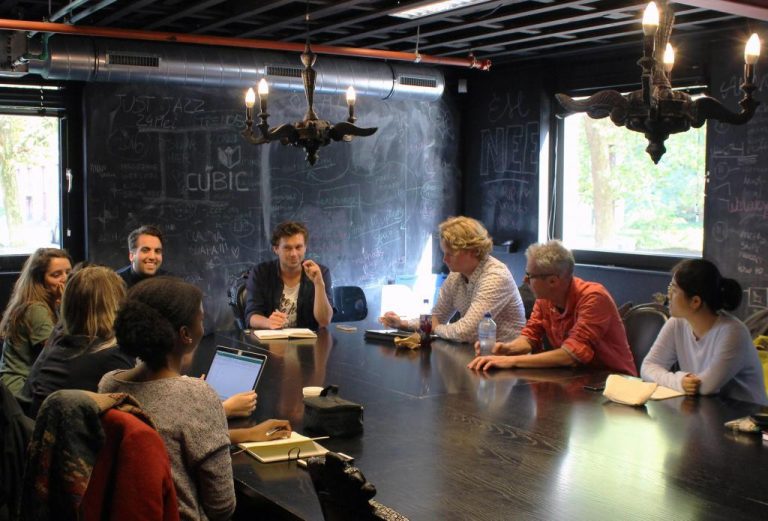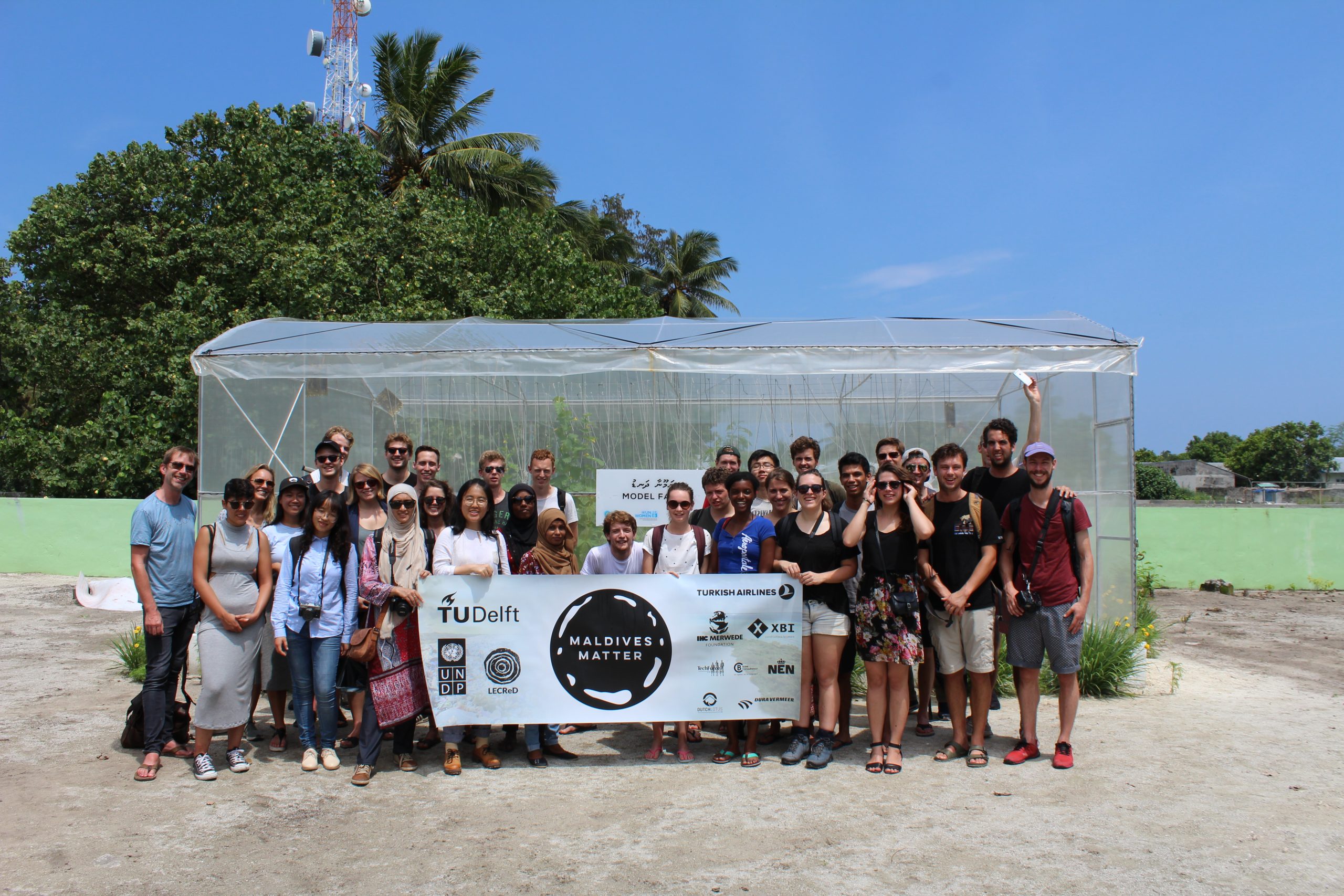Having been set a brief, students of the Faculty of Architecture and Built Environment at TU Delft formed a collective, Maldives Matter. This organisation, with the help of sponsors and contributors, successfully completed a research trip to the Maldives. After this journey, the students started creating design proposals that focus on inefficient waste management and agriculture.
One major problem in the Maldives is the lack of suitable solid waste management. (Photo: R. van Roessel)
- Goals
The first goal of Maldives Matter was achieved by collecting data during the field trip to the Maldives, as described in the first blog. The students could then start working on their proposals in line with the initial brief of the United Nations and TU Delft.
Before being able to call Maldives Matter a success, the second goal is to host a symposium on January 30th in the Berlage Room at BK City. This event will conclude the activities of the Architectural Engineering Master studio and will be open to both students and sponsors.
This event aims to start a dialogue between all stakeholders and interested parties. It will create the opportunity for all participants to come together and share ideas. Maldives Matter itself will use this platform to share its knowledge from the trip and the students’ design proposals. Also present will be Ahmed Shiaan, the ambassador of the Maldives. Maldives Matter will meet again with Joanne Doornewaard, the Dutch Ambassador to the Maldives and Sri Lanka later that week.
- Current state of the project
The design phase started immediately after the trip. Currently, all the students are working on their final presentations, using model making, drawing and detailing.


- Glimpse of possible solutions for the Maldives
Some students are working on designs which explore programmes to create: international ties with the Maldives and its neighbours, educational centres and production streams which will add value to waste. Other students are exploring: floating farms and factories for coastal defence; a women’s mosque combined with a bio-digester; and waste management centres to up-cycle waste. These are just a small sample of the current outcomes which are appearing in a variety of exciting forms and innovative solutions.
- Future
Feasibility is a really important component of this project. This is especially so because the issues that need to be addressed are not only relevant for the local population, but also for the broader context. Proposals should be adaptable and present opportunities for similar environments around the globe. But every question addressed raises many more questions.
As students, we are encouraged to be eager, to learn, to position ourselves and to contribute. Maldives Matter, with help of sponsors and contributors, takes our efforts a step further, creating the opportunity to bring this project beyond the parameters of the course. Maldives Matter also gives us the chance to communicate beyond the boundaries of our study group, reaching out to people on multiple platforms, digitally on social media and personally at the symposium. It helps us initiate and encourage conversation.
Alexander de Caires, Thomas Edes and Nadine Tietje
- Also read the first blog Maldives Matter
- Symposium Maldives Matter, 30 January 14:00-16:00 Berlage Room, BK City.


In collaboration with the United Nations, TU Delft developed an architectural design brief for sixty-four Architectural Engineering Master studio students. Its objective is to address the Maldives’ two major issues of waste management and agriculture using architectural interventions to instigate positive change.


![[Blog] Maldives Matter, designing for paradise](https://delta.tudelft.nl/wp-content/uploads/2023/12/vuilnisbelt_R.-Van-Roessel-1-scaled.jpg)
Comments are closed.